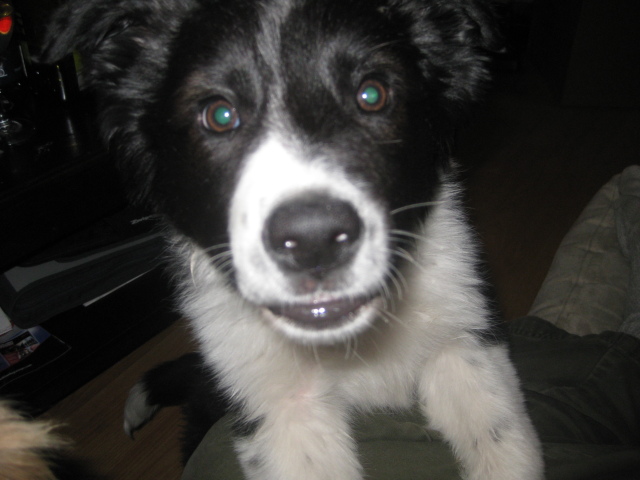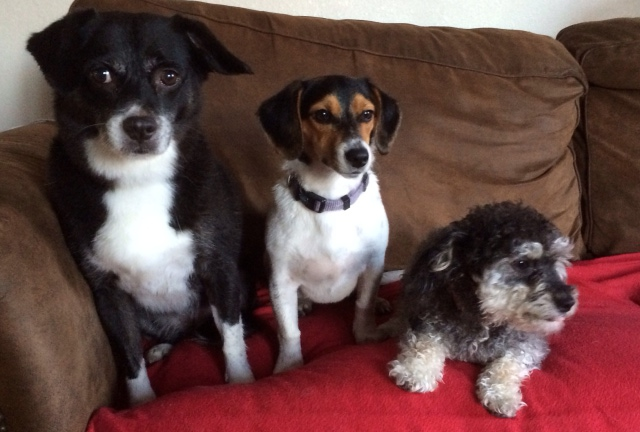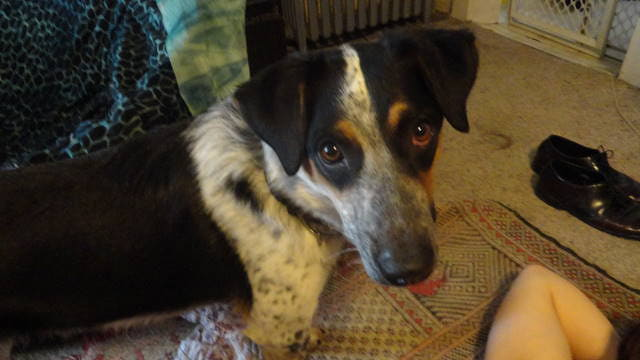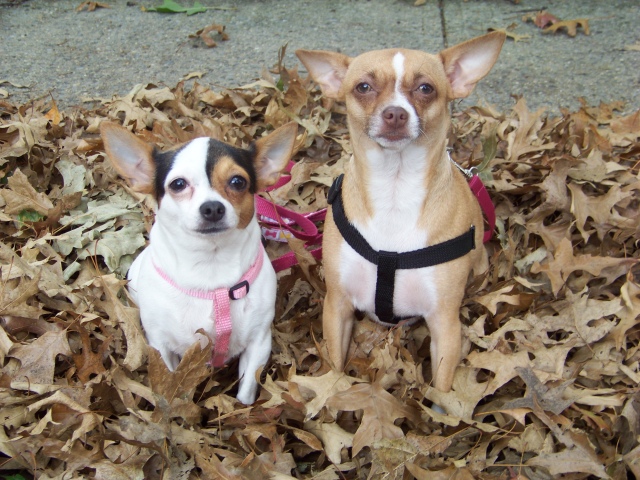QuestionWhen my husband and I moved into our own place, we found that our Weimaraner missed the dog she had been living with. So, off we went to the humane society to bring home a companion dog. We got a sweet labrador/hound mix that our weim just loves.
The lab has been the problem. She chews on anything that is plastic, even when her bones/ toys are readily available. She is between 2.5-3 years old and we have had her for more than ten months now. We have tried rotating their toys so they always seem new, but she knows they aren't. She really seems to do most of her chewing at night- we have all our dogs crate trained for while we are out of the house. We always make sure she has a bone right near her when we go to bed, but we often wake up to find she has taken the remote control or my husband's medication bottle into the bedroom. She especially loves electrical razors (although I think she must have some help getting to those- they are kept up pretty high and I think the cat must help). We have tried taking naughty things away with a stern "no" and offering her something appropriate, but i only seems to work for a few minutes, and then she finds something new to chew on. As a basic rule, if it is plastic it is not safe. I just find we cannot keep everything bad for her to chew on out of reach.
My husband has gotten to the point that he just cannot stand her anymore, but she and I have bonded too much to part with her. I know this is likely to be a problem caused by owner error, but I just don't know what else to do. Please, if you can think of anything, let us know what it is!
Thank you!!!
AnswerI can sympathize, having a young dog who went through a remote and key stealing phase. Labs are very oral dogs. And all dogs tend to relieve stress by doing certain things - of which chewing is one. By this point it is a habit, and she is unlikely to stop it without intervention. You say the problem is worst at night? When you are asleep? If so, she needs to be somewhere she can't get into trouble. If you don't want to crate her at night after her being crated during the day, you can tether (obviously with a non-chewable cable) her in a plastic-free zone while you sleep. When you are awake, she should not be unsupervised. Use baby gates, shut doors (she can't get the razors if the bathroom door is shut, right?) and possibly even tether her to you. Have you tried stuffed Kongs for her - they are tough and fun to chew, plus there's the puzzle of getting food out of them, which might keep her attention. Teach her a good strong "leave-it" and watch for her to even look at off-limit items, at which time you tell her leave it and she gets great treats for coming to you instead. You can also teach her to retrieve things to you for treats and great praise. If she learns that bringing you any picked up object is rewarding, then they will have fewer tooth marks.
Past the matter of managing her environment to keep her out of trouble, let's address why she does this. Part is habit - which you must break by supervision and not giving her access to the things you don't want her chewing. I suspect part may be stress. Some stress which came with her being re-homed with you, and some stress from people getting angry when she does natural doggie things (which we can relieve by not giving her access to the stuff). My guess is she needs more structure to her life - clear, understandable rules, routines, good leadership from you. This means some training, so she can give you asked-for behaviors for the things she wants. This also teaches self control. She also probably needs more physical exercise and more mental stimulation (the training will really help there.) Dogs who are taught in a fair and positive way what is exected of them tend to be less stressed. Less stress and more mental stimulation means less chance of falling into default behaviors we don't like. If you consistently follow these suggestions and aren't seeing improvement, the behavior may have an element of compulsive disorder. If that's the case, you may want to have your vet steer you to a vet behaviorist who can prescribe anti-anxiety drugs which will help, along with the training. Sandy Case MEd CPDT www.positivelycanine.com

 Border collie help
Question
Miaya
Hi
We have a 16 week old border collie.
Border collie help
Question
Miaya
Hi
We have a 16 week old border collie.
 Dog aggression
Question
The 3 of them
I have 3 spayed female do
Dog aggression
Question
The 3 of them
I have 3 spayed female do
 A doting mother in need of help!
Question
Chewy
In the past year I got a cattle d
A doting mother in need of help!
Question
Chewy
In the past year I got a cattle d
 My dog eats poop
Question
thats luna to the righ
Hello, how are you? I h
My dog eats poop
Question
thats luna to the righ
Hello, how are you? I h
 Designating bathroom area
Question
backyard
I have 2 medium mutts that are both b
Designating bathroom area
Question
backyard
I have 2 medium mutts that are both b